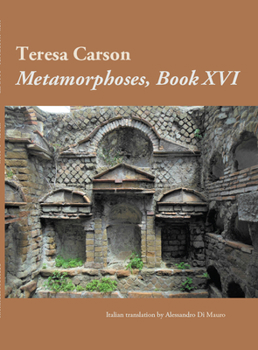Metamorphoses, Book XVI
In this second volume in her series The Argument of Time, Teresa Carson takes us from the abandoned port town of Ostia to the galleries of the Metropolitan Museum of Art in New York. In its galleries, we encounter a marble sarcophagus dedicated by a dutiful daughter, Aninia Hilara, to her ?incomparable mother', Claudia Arria, its beautifully carved reliefs depicting the myth of Selene, goddess of the moon, and her sleeping lover Endymion.
Asking how we, as modern viewers, are to interpret such a monument, Carson invites us to accompany her as she attempts to decode its iconography, to access the desires, relationships, and even the most mundane experiences of the deceased, and to reconcile the souls whose memories it preserves with the sterile museological context in which it is now encountered.
Juxtaposing the language of inventory, label, catalog, and dry art-historical description (complete with footnotes) with direct address to the departed and powerful expressions of grief in which language breaks down altogether, Carson braids her own experience of loss with an eloquent commentary on the irreconcilable relationship between archaeological artifacts and the living, breathing individuals who once gave them meaning. Ovid may have claimed in his Fasti that the shades ask little (parva petunt manes), but Carson movingly grants them far more. For those who care to try, Remembering remains.
--Verity Platt, Professor of Classics and History of Art, Cornell University
Poetry. Art. Classical Studies. Italian Studies. Art History.





